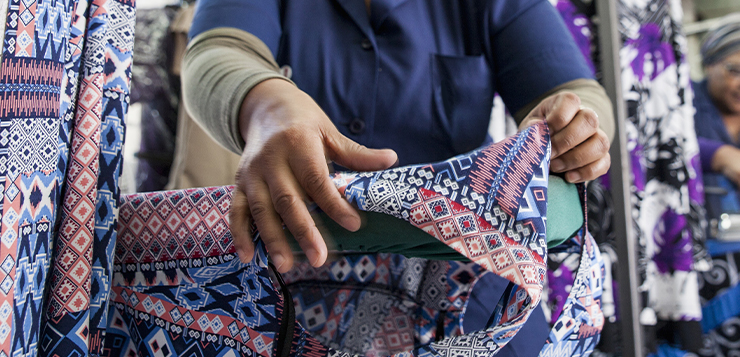
“The European Green Deal is our new growth strategy – for a growth that gives back more than it takes,” says Ursula von der Leyen, President of the European Commission, encapsulating the ambitious vision of Europe’s initiatives towards achieving sustainable development. While these initiatives are designed to foster a greener economy, the reality for many industries outside the EU is far from the intended growth. For textile hubs like Tiruppur in India, these new sustainability standards present significant challenges, threatening their viability and economic stability.
The European Union (EU) has introduced stringent sustainability standards as part of its broader Green Deal and European Sustainability Reporting Standards (ESRS). Among these initiatives, the Carbon Border Adjustment Mechanism (CBAM) is a key measure designed to impose carbon pricing on imported goods, ensuring that imported products are subject to the same environmental standards as those produced within the EU. This mechanism affects industries with high carbon emissions, including the textile industry, pressuring exporters to reduce their carbon footprint or face higher costs.
Tiruppur, known as the “Knitwear Capital of India”, accounts for approximately 90% of India’s cotton knitwear exports, with a significant portion destined for the EU and other international markets. An estimated 3,200 MSMEs in the cluster play a pivotal role in driving innovation, flexibility and competitiveness; these MSMEs face significant challenges due to Europe’s new sustainability standards.
According to a 2022 report by the Confederation of Indian Industry (CII), approximately 90% of organisations have not yet sustainably aligned their operations with either national or global initiatives on climate change. While some organisations (about 60%) are in the process or have committed to net zero GHG emissions, many MSMEs in Tiruppur are still lagging in integrating sustainable practices.
The question arises: what will happen to the thousands of MSMEs in Tiruppur that may struggle to meet these new environmental requirements? The potential implications are profound, and the challenges are numerous:
- They will need to invest in new technologies and processes to reduce carbon emissions and align with EU standards, leading to substantial financial burdens. Furthermore, obtaining the necessary environmental certifications and conducting regular audits can be costly, particularly for smaller enterprises with limited resources.
- The need to shift to sustainable raw materials may disrupt existing supply chains, increase costs, and create logistical challenges. Many rely on imported materials, which may now be subject to higher tariffs under CBAM, further straining their financial resources.
- Tiruppur also faces stiff competition from countries that have already adopted sustainable practices or received government support to comply with new regulations, potentially eroding Tiruppur’s market share.
- Moreover, navigating the complex EU regulatory landscape can be overwhelming for MSMEs, leading to potential legal issues and penalties for non-compliance. Extensive documentation and reporting requirements can burden them, diverting resources away from core business activities.
With these measures aiming to promote global environmental responsibility, the immediate impact on Tiruppur could be severe, threatening its position as a leading textile hub. Without adequate support and strategic planning, many MSMEs face an uncertain future, with potential economic and social repercussions for the region.
The road ahead is challenging, and the industry must navigate these turbulent waters carefully, balancing compliance with sustainability demands while striving to maintain its global competitiveness.
